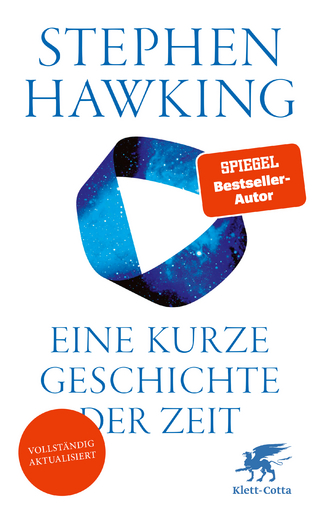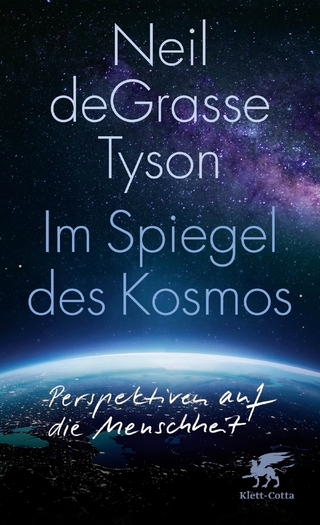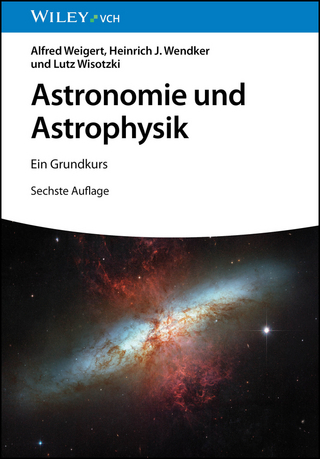
Integrated Science
McGraw-Hill Professional (Verlag)
978-0-07-786260-2 (ISBN)
- Titel z.Zt. nicht lieferbar
- Versandkostenfrei innerhalb Deutschlands
- Auch auf Rechnung
- Verfügbarkeit in der Filiale vor Ort prüfen
- Artikel merken
Integrated Science provides an introduction to a scientific way of thinking as it introduces fundamental scientific concepts, often in a historical context. Several features of the text provide opportunities for students to experience the methods of science by evaluating situations from a scientific point of view. Although technical language and mathematics are important in developing an understanding of science, only the language and mathematics needed to develop central concepts are used. No prior work in science is assumed.
Many features, such as Science and Society readings, as well as basic discussions of the different branches of science help students understand how they relate. These connections allow students to develop an appreciation of the major developments in science and an ability to act as informed citizens on matters that involve science and public policy.
The Integrated Science sequence of chapters is flexible, and the instructor can determine topic sequence and depth of coverage, as needed. The materials support a conceptual approach or a combined conceptual and problem-solving approach.
The Integrated Science Online Learning Center's Instructor's Resources offer suggestions for integrating the text's topics around theme options. With laboratory studies, the text contains enough material for the instructor to select a sequence for a one- or two-semester course.
The goals of Integrated Science are as follows:•Create an introductory science course aimed at the non-science major.•Introduce a course that presents a coherent and clear picture of all science disciplines through an interdisciplinary approach.•Help instructors build their own mix of descriptive and analytical aspects of science, arousing student interest and feelings as they help students reach the educational goals of their particular course.•Humanize science for non-science majors.
New to This Edition•The text features several new worked Examples and end-of-chapter Parallel Exercises.•The new Science Sketch feature engages students in creating their own explanations and analogies by challenging them to create visual representations of concepts.•The new Self Checks feature allows students to check their understanding of concepts as they progress through the chapter.•The illustrations within the biological content have been revised to reduce their complexity.•Chapter 13 includes many new images and updated information from the latest space missions. •Chapter 16 contains additional information on distances in space.•Chapter 17 includes the most recent information on climate change, causes of global climate change, and global warming.
The Connect digital learning platform includes SmartBook, an adaptive digital version of the course textbook, that personalizes your reading experience based on how well you are learning the content; provides access to your instructor's homework assignments, quizzes, syllabus, notes, reminders, and other important files for the course; and offers progress dashboards that quickly show how you are performing on your assignments and tips for improvement
Bill W. Tillery earned a B.A. at Northeastern State University and an M.A. and Ph.D. from the University of Northern Colorado. He is professor emeritus of physics at Arizona State University. Dr. Tillery served as director of the Science and Mathematics Teaching Center at the University of Wyoming and as an assistant professor at Florida State University. Dr. Tillery was honored as Outstanding University Educator at the University of Wyoming and was elected Outstanding Teacher in the Department of Physics and Astronomy at Arizona State University. Dr. Tillery has taught a variety of courses, including general education courses in science and society, physical science, and introduction to physics. He has received more than 40 grants from the National Science Foundation, the U.S. Office of Education, private industry, and private foundations for science curriculum development and science teacher in-service training. Eldon D. Enger received a B.A. and an M.S. from the University of Michigan. He is professor emeritus of biology at Delta College, where he taught biology, zoology, and environmental science and was active in curriculum and course development. Professor Enger is an advocate for variety in teaching methodology and feels that if students are provided with varied experiences, they are more likely to learn. Professor Enger's classes include writing assignments, student presentation of lecture material, debates by students on controversial issues, field experiences, individual student projects, and discussions of local examples and relevant current events. Professor Enger was a Fulbright Exchange Teacher to Australia and Scotland, received the Bergstein Award for Teaching Excellence and the Scholarly Achievement Award from Delta College, and participated as a volunteer in Earthwatch Research Programs. Frederick C. Ross received his B.S. and M.S. from Wayne State University. He is professor emeritus of biology at Delta College and has 30 years' teaching experience, including junior and senior high school, during which he has taught biology, cell biology and biological chemistry, microbiology, environmental science, and zoology. Professor Ross has been active in curriculum and course development, including the development of courses in infection control and microbiology, AIDS and infectious diseases, and a PBS ScienceLine course for elementary and secondary education majors in cooperation with Central Michigan University. Professor Ross was involved in the development of the wastewater microbiology technician curriculum offered by Delta College and was actively involved in the National Task Force of Two Year College Biologists (American Institute of Biological Sciences) and in the National Science Foundation College Science Improvement Program.
Chapter 1 What Is Science?Chapter 2 MotionChapter 3 EnergyChapter 4 Heat and TemperatureChapter 5 Wave Motions and SoundChapter 6 ElectricityChapter 7 LightChapter 8 Atoms and Periodic PropertiesChapter 9 Chemical ReactionsChapter 10 Water and SolutionsChapter 11 Nuclear ReactionsChapter 12 The UniverseChapter 13 The Solar SystemChapter 14 Earth in SpaceChapter 15 EarthChapter 16 Earth's SurfaceChapter 17 Earth's WeatherChapter 18 Earth's WatersChapter 19 Organic and BiochemistryChapter 20 The Nature of Living ThingsChapter 21 The Origin and Evolution of LifeChapter 22 The History of Life on EarthChapter 23 Ecology and EnvironmentChapter 24 Human Biology: Materials Exchange and Control MechanismsChapter 25 Human Biology: ReproductionChapter 26 Mendelian and Molecular GeneticsAppendix A Mathematical ReviewAppendix B Solubilities ChartAppendix C Relative Humidity TableAppendix D Problem SolvingAppendix E Solutions for Second Example ExercisesAppendix F Solutions for Group A Parallel ExercisesGlossaryIndex
| Sprache | englisch |
|---|---|
| Maße | 231 x 274 mm |
| Gewicht | 1524 g |
| Themenwelt | Sachbuch/Ratgeber ► Natur / Technik ► Weltraum / Astronomie |
| Naturwissenschaften ► Physik / Astronomie | |
| ISBN-10 | 0-07-786260-0 / 0077862600 |
| ISBN-13 | 978-0-07-786260-2 / 9780077862602 |
| Zustand | Neuware |
| Haben Sie eine Frage zum Produkt? |
aus dem Bereich


